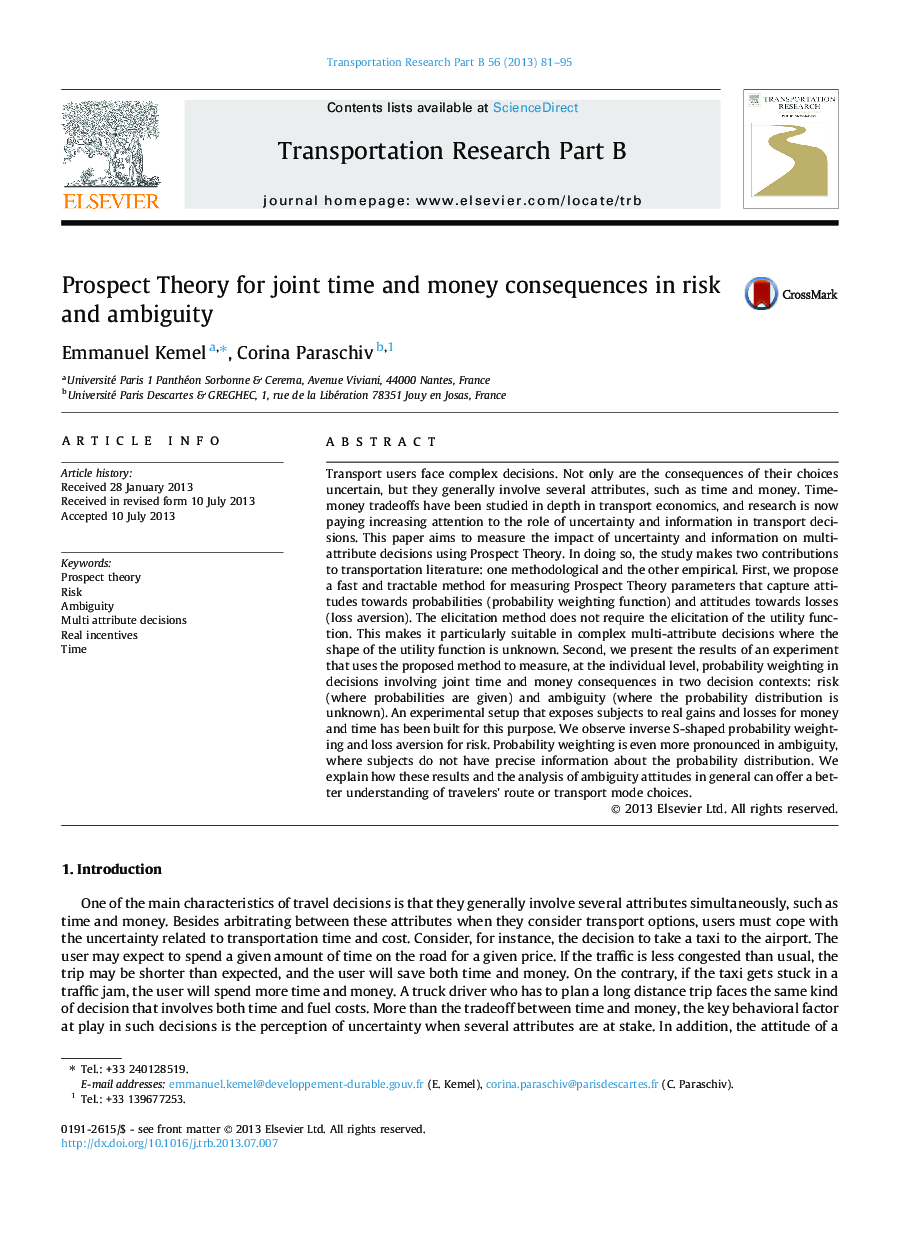| Article ID | Journal | Published Year | Pages | File Type |
|---|---|---|---|---|
| 1132148 | Transportation Research Part B: Methodological | 2013 | 15 Pages |
•A probability weighting measurement method for multi-attribute decisions is proposed.•The method is implemented in an experiment involving real time and money incentives.•Attitudes towards risk and towards ambiguity are compared at an individual level.•Probability weighting is observed for both risk and ambiguity and is more pronounced under ambiguity.•Ambiguity attitudes offer new research directions of mode and route choice modeling.
Transport users face complex decisions. Not only are the consequences of their choices uncertain, but they generally involve several attributes, such as time and money. Time-money tradeoffs have been studied in depth in transport economics, and research is now paying increasing attention to the role of uncertainty and information in transport decisions. This paper aims to measure the impact of uncertainty and information on multi-attribute decisions using Prospect Theory. In doing so, the study makes two contributions to transportation literature: one methodological and the other empirical. First, we propose a fast and tractable method for measuring Prospect Theory parameters that capture attitudes towards probabilities (probability weighting function) and attitudes towards losses (loss aversion). The elicitation method does not require the elicitation of the utility function. This makes it particularly suitable in complex multi-attribute decisions where the shape of the utility function is unknown. Second, we present the results of an experiment that uses the proposed method to measure, at the individual level, probability weighting in decisions involving joint time and money consequences in two decision contexts: risk (where probabilities are given) and ambiguity (where the probability distribution is unknown). An experimental setup that exposes subjects to real gains and losses for money and time has been built for this purpose. We observe inverse S-shaped probability weighting and loss aversion for risk. Probability weighting is even more pronounced in ambiguity, where subjects do not have precise information about the probability distribution. We explain how these results and the analysis of ambiguity attitudes in general can offer a better understanding of travelers’ route or transport mode choices.
